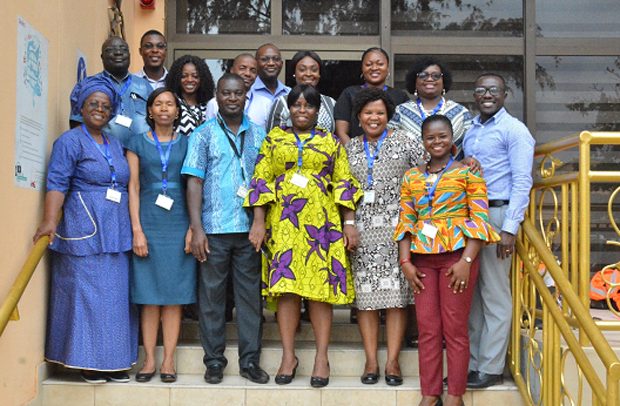The Zambian delegation with some GGBL representatives
A delegation from Zambia’s Ministry of Commerce, Trade and Industry has paid a working visit to Guinness Ghana Breweries Limited (GGBL) to learn from the company’s much-touted Local Raw Material (LRM) programme.
The LRM initiative is GGBL’s shared value programme which commenced in 2012 and sustainably sources local raw materials for the production of some of its flagship drinks like Malta Guinness, Top Malt, Star Beer, Guinness Foreign Extra Stout and Ruut Extra Premium.
The delegation, led by the Permanent Secretary, Kayula Siame, was in Ghana to explore the commercialization of cassava, implementation of industrial yards and also understand the agricultural supply and value chains under the LRM programme to possibly replicate in Zambia.
Speaking about the visit, Kayula Siame said her team had learnt valuable lessons that they can use to transform lives in Zambia as well.
“In Zambia we are also implementing something similar and for us our main goal is the cassava value chain and how we can commercialise it in Zambia. We find the progress in Ghana as an impressive sustainable sourcing example and value creation strategy,” she added.
“We recently introduced our local content strategy in Zambia and the Ghana case study is something we would like to share with a number of companies back home as a way of supporting our industrialization drive as a country,” she said.
Agri-business Development Lead at GGBL, Stephen K. Ghansah, who explained the programme to the Zambian delegation, said farmers and sourcing communities are central in GGBL’s sourcing strategy to generate the required positive impact.
GGBL’s LRM programme has so far benefited more than 25,000 local farmers, impacting over 175,000 lives across Ghana.
Presently, the business uses 48% of local raw materials in the production of its premium brands and has an ambition to step change it to 70% by 2020.
A business desk report


